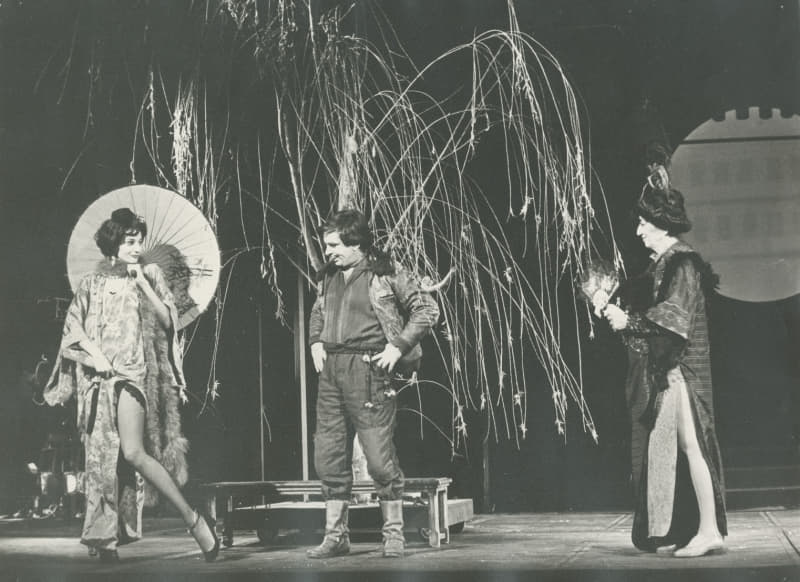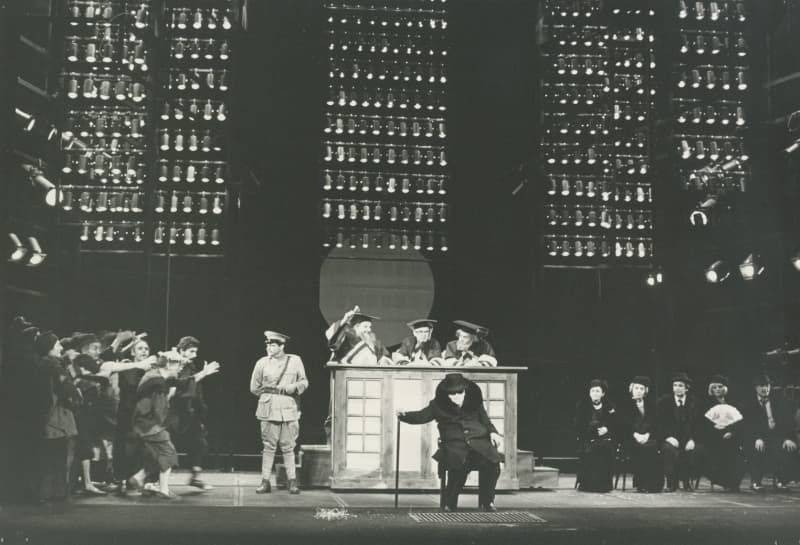Brecht Bertolt
Germany
Bertolt Brecht (1898-1956) was a German poet, playwright and director, as well as a hugely important theatrical reformer. In his writing, he condemns militarism and praises Marxist philosophy. He was influenced by Chinese and Russian drama, as well as the work of Frank Wedekind. During the rise of Nazism, he lived in self-exile in various European countries and in America. There, he collaborated with important artists, but Hollywood never opened its doors to him. In 1949, after his return to Germany, he and his second wife, Helene Weigel, founded the Berliner Ensemble. He developed his own form of epic theatre, according to which audiences should be distanced from the characters and the action of a play by various techniques so that the performance is thought-provoking and not an illusion of reality. In order to constantly remind audiences that they are watching an artifice, he used bright lighting on the stage, explanatory signs, actors speaking directly to the audience, third-person narration, and the use of songs to prevent the audience from identifying with the events. His main characters, who come from the working class and are gripped by revolutionary fervour, come into conflict with morality, religion, the law, and capitalism. Brecht died of a heart attack at the age of 58.
A short list of his plays:
Downfall of the egotist Johann Fatzer, The rise and fall of the city of Mahagonny, The threepenny opera, Saint Joan of the stockyards, Galileo, Mother courage and her children, The good person of Szechwan, The resistible rise of Arturo Ui, The caucasian chalk circle.
Someone who doesn’t know the truth is just a fool. But someone who knows the truth and lies about it, is a criminal. (Galileo)
What is robbing a bank compared with founding a bank? (The threepenny opera)
Make sure that when you leave the world
You weren’t just good
But left a good world behind you... (Saint Joan of the stockyards)









.jpg)
.jpg)
